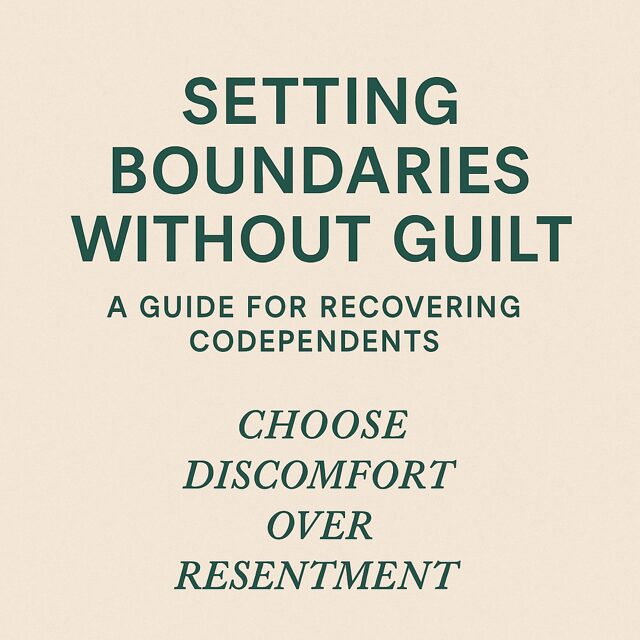If you’ve spent much of your life putting others’ needs before your own, saying “yes” when you really meant “no,” or feeling responsible for the emotions and actions of those around you—know that you’re not alone. Many people navigating codependency struggle with setting healthy boundaries. And even when they start to say “no” or speak up for their needs, guilt often rushes in.
But here’s the truth: Boundaries are not selfish. They’re essential. And you deserve to have them.
What Are Boundaries, Really?
Boundaries are the limits we set to protect our emotional, physical, and mental well-being. They’re not walls that shut people out—they’re guideposts that define what’s okay and what’s not okay for us.
For recovering codependents, boundaries can feel foreign or even “mean.” After years of people-pleasing, we often equate self-care with self-centeredness. But healthy boundaries are a sign of self-respect—and they invite mutual respect from others.
Why Guilt Shows Up
Guilt is a common emotional response when you begin setting boundaries, especially if:
-
You were taught to prioritise others at your own expense.
-
You fear rejection or conflict.
-
You believe love must be earned through sacrifice.
It’s important to recognise that guilt doesn’t always mean you’re doing something wrong. Sometimes, guilt is just an emotional echo from the past, reacting to a new (but healthier) behaviour.
How to Set Boundaries Without Guilt
Here are a few strategies to help you set boundaries with confidence and compassion:
1. Start Small and Be Specific
You don’t need to overhaul your entire life in one day. Begin with small, manageable boundaries. For example:
“I won’t answer work emails after 7 p.m.” or “I need 15 minutes of quiet time in the morning.”
2. Use “I” Statements
Instead of blaming or accusing, focus on your experience:
“I feel overwhelmed when plans change at the last minute. I need more notice moving forward.”
This invites understanding, not defensiveness.
3. Expect Resistance—And Hold Steady
Some people may push back, especially if they’re used to you always saying yes. That doesn’t mean you’re wrong. It means the relationship is adjusting. Stay grounded in your truth.
This is where a powerful mantra can help:
“Choose discomfort over resentment.”
Yes, saying no might feel awkward or tense in the moment—but it’s far better than saying yes and building silent resentment over time.
4. Practise Self-Compassion
When guilt creeps in, remind yourself:
“It’s okay to take care of myself.”
Your needs are valid. You’re not hurting anyone by honoring them.
5. Seek Support
Working with a therapist can be incredibly helpful in unpacking guilt, rewriting internal narratives, and practising new behaviours in a safe, supportive space.
You’re Allowed to Take Up Space
Recovering from codependency is not about becoming cold or distant—it’s about finding balance. It’s about learning to love and support others without losing yourself in the process.
You can be kind and still have limits.
You can be generous and still say “no.”
You can care deeply and still protect your energy.
Ready to Build Healthier Boundaries?
If you’re tired of feeling drained, resentful, or invisible in your own life, therapy can help you reconnect with your inner voice and reclaim your power.
Schedule a free 15-minute consultation today to see how boundary work can transform your relationships—and your relationship with yourself.
Andrea x


One Reply to “Setting Boundaries Without Guilt: A Guide for Recovering Codependents”